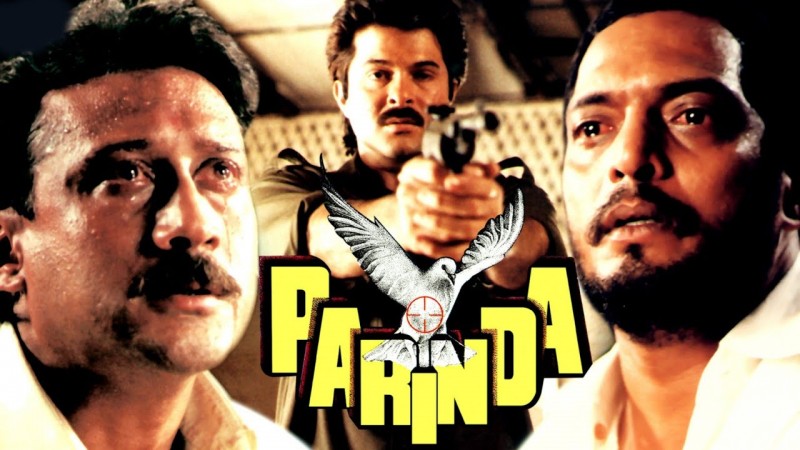
Cinema frequently has a significant impact on influencing language, culture, and the society it depicts. "Parinda," a 1989 Indian crime drama directed by Vidhu Vinod Chopra, is one such instance. This movie not only enthralled viewers with its compelling narrative and top-notch acting, but it also permanently changed how the streets of Bombay speak in terms of slang from the underworld. The film's realistic portrayal of the gritty criminal underworld and its delivery of the dialogue have helped underworld slang become part of the city's everyday vocabulary. In this article, we examine how "Parinda" contributed to Bombay's linguistic diversity by introducing gangster slang.
"Parinda" was a groundbreaking 1989 movie that explored the characters' lives and the complex dynamics of the underworld. Anil Kapoor and Jackie Shroff played two brothers who became involved in Mumbai's criminal underworld. The plot of the movie focused on their relationship. The story of the movie, which was characterized by strong performances and an accurate depiction of the seedy underbelly of the city, struck a chord with the audience.
The portrayal of the characters and their language as accurately as possible was one of "Parinda"'s most notable qualities. The dialogues reflected the world that the movie aimed to portray because they were unfiltered, raw, and real. The story's believable setting was greatly helped by the use of gangster slang. The dialogue between characters was spoken in a language that was relatable to their environment, which boosted the film's overall authenticity.
Along with captivating moviegoers, "Parinda" unintentionally helped Bombay's streets become more familiar with gangster slang. The dialogue in the movie became likable and catchy, which encouraged young people and residents of the city's diverse neighborhoods to adopt it. Despite being unique to the context of the movie, the dialogue had resonance outside of the world of movies.
It is astounding how "Parinda" affected common speech. Particularly in some regions where the underworld's influence was more obvious, expressions, phrases, and words from the movie entered common speech. New meanings were given to words like "dabba" (box), "khooni" (bloody), and "bachcha" (child), frequently signifying criminal activity or ties. Despite the fact that not all facets of society adopted these terms in the same way, they had a profound impact on culture.
The popularity of "Parinda" also influenced later movies that dealt with related topics. In order to give their stories credibility, filmmakers started incorporating regional slang, idioms, and expressions after realizing the importance of authenticity in dialogue delivery. This pattern was continued in movies like "Satya" (1998) and "Company" (2002), solidifying gangster slang as a crucial component of the crime genre.
While "Parinda" was instrumental in spreading slang used in the criminal underworld, it also raised concerns about how much influence filmmakers have over how people perceive language and culture. Slang that is associated with criminal activity can reinforce stereotypes and elevate criminal activity. While acknowledging the ability of film to influence attitudes and perceptions, filmmakers had to strike a balance between authenticity and societal impact.
The 1989 film "Parinda" is proof of the transformative potential of the moving image. These linguistic quirks were adopted in Bombay's streets due to its accurate depiction of the underworld and use of dialect unique to that world. While the movie's influence on language is undeniable, it also emphasizes how much of an impact film has on culture and society as a whole. In addition to providing entertainment, "Parinda" unintentionally helped to shape Bombay's linguistic environment, leaving an enduring legacy in the form of the incorporation of underworld slang into common speech.
The Unconventional Setting of 'Gol Maal' in Mukherjee's Bungalow
The Alpine Elegance of Yash Chopra's 1970s Cinematic Romance